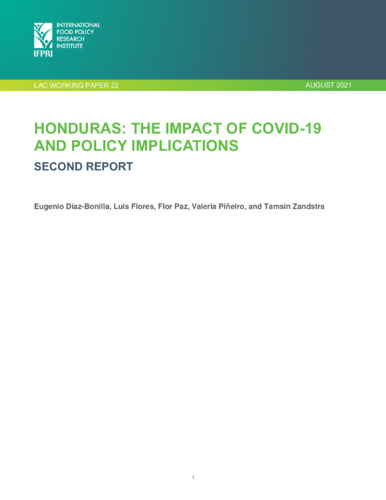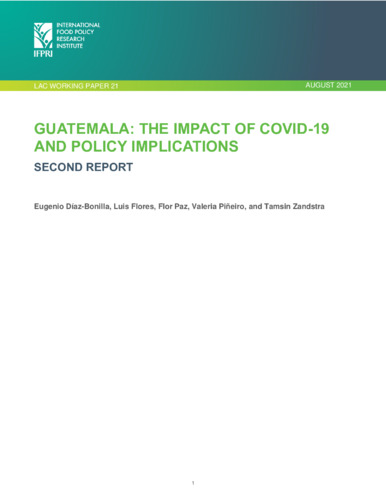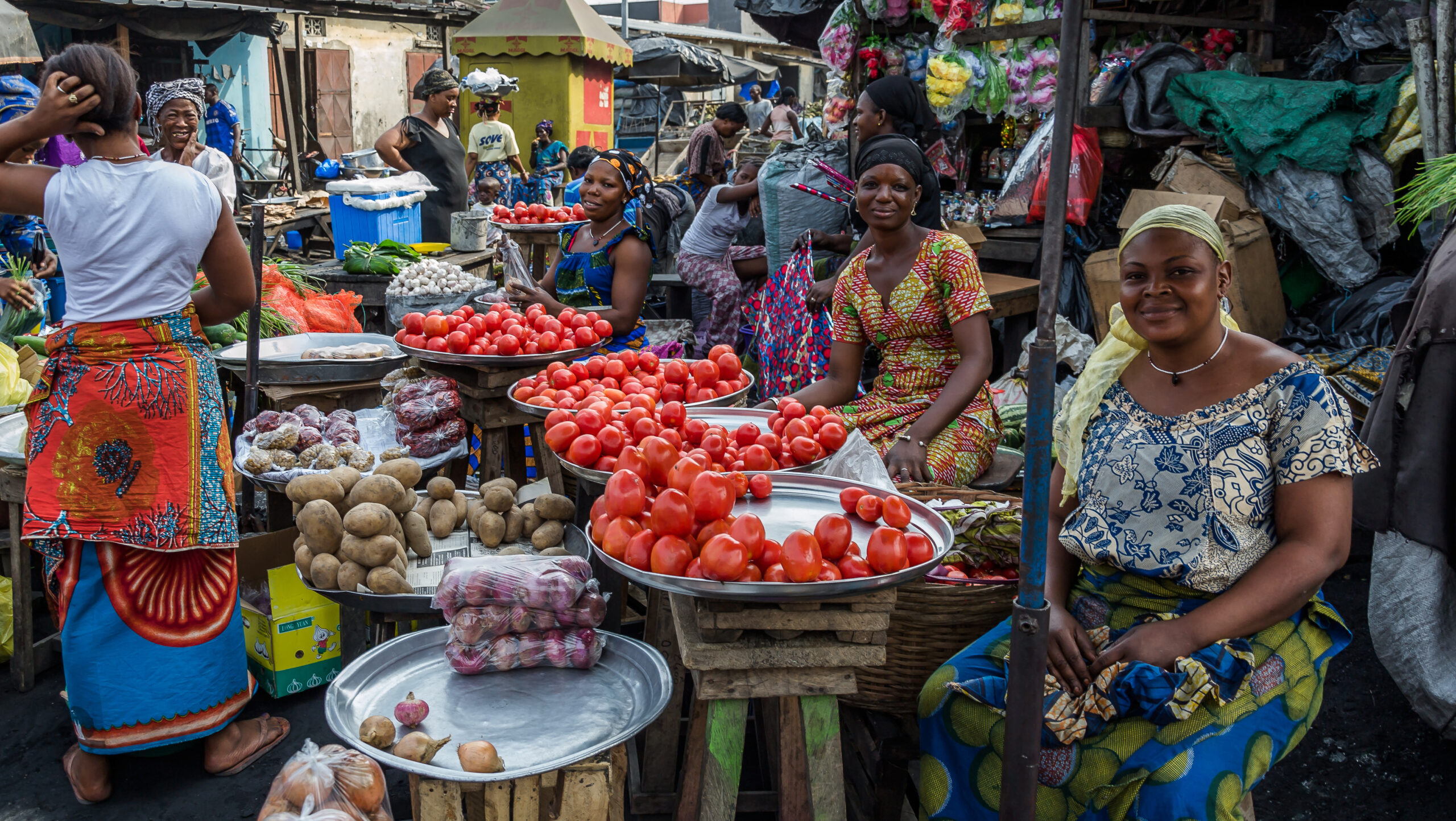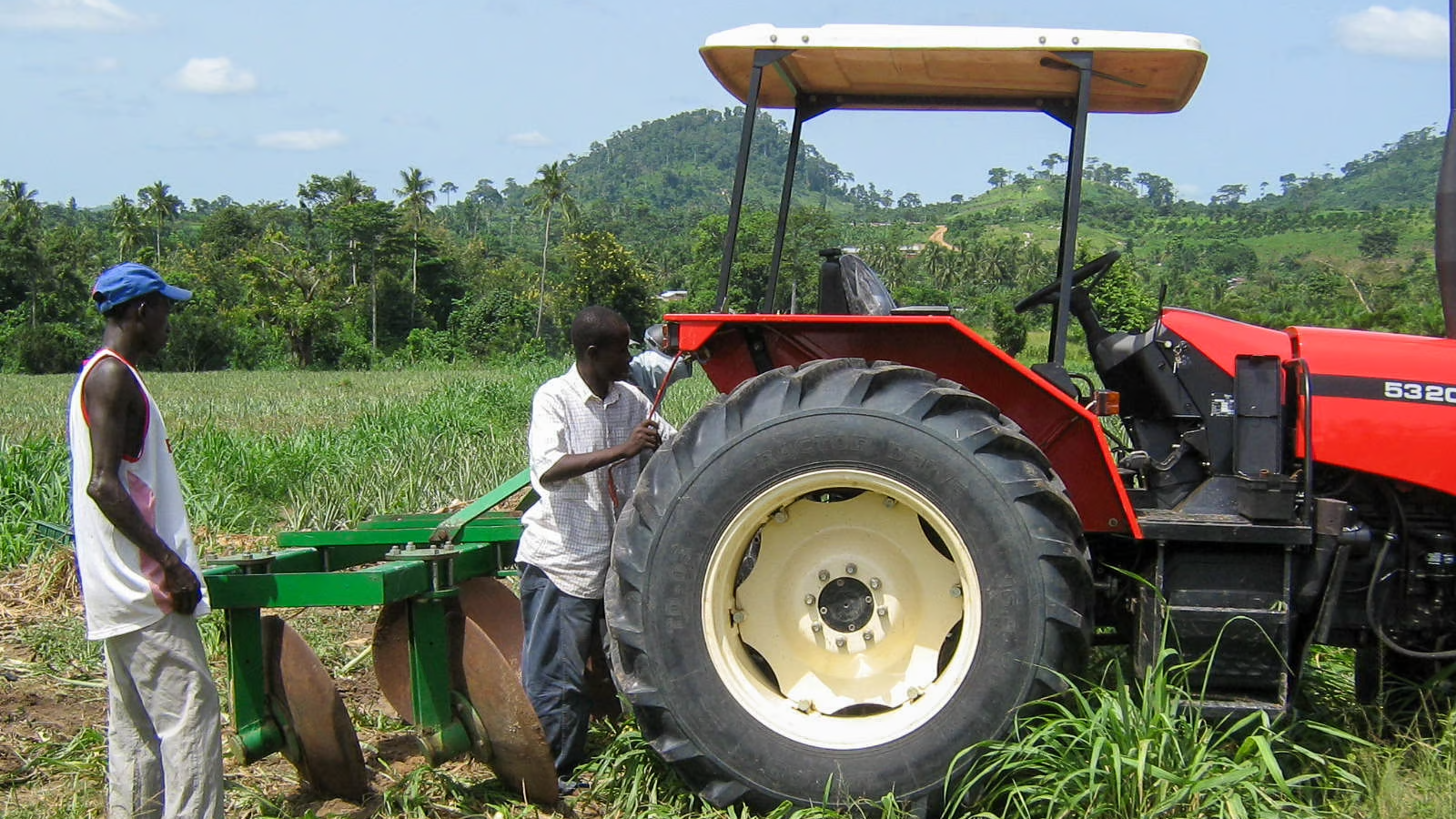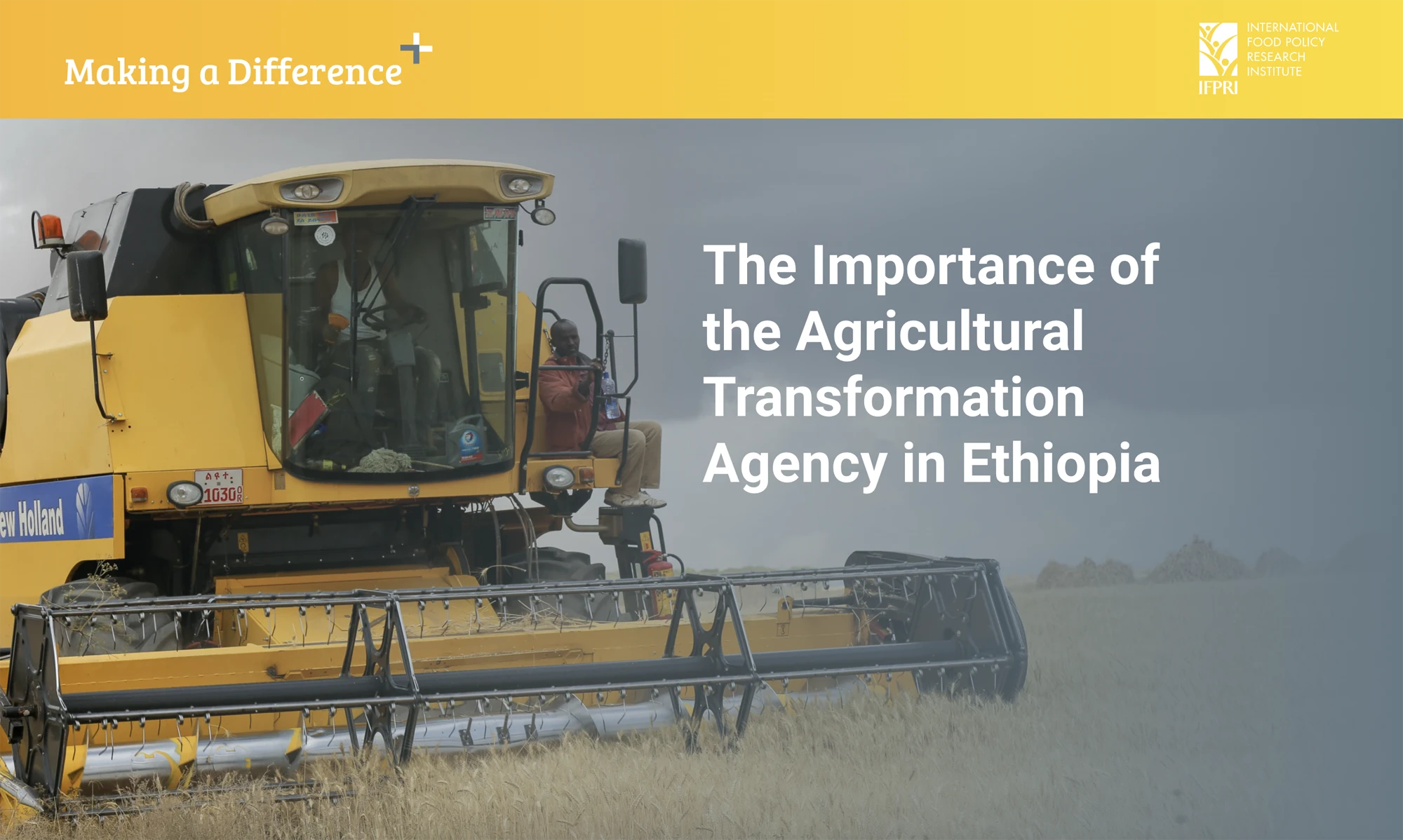Guatemala: The impact of COVID-19 and implications: Second report
Amid concerns about the beginning of the COVID-19 pandemic, Guatemala, in January 2020 decreed travel bans from China, which were later expanded to other countries. The country had the first confirmed COVID-19 case on March 13 and the first death on March 15. Some days before that, on March 5, the government had declared a “state of calamity” (Declaración del Estado de Calamidad Pública – Decreto Gubernativo Número 5-2020), which allowed the government to limit some activities,1 and to take different actions2 to protect the health and safety of all persons in Guatemala. This document updates a previous report (Díaz Bonilla, Laborde and Piñeiro, 2021) on the impact of the COVID-19 pandemic on food systems in Guatemala. First, it brings up to date the evolution of the pandemic, using different indicators. Second, it summarizes the main responses, costs, and financing. Third, it updates the evolution of key economic and nutritional variables up to the time of this writing (June, 2021). Fourth, there is a more detailed analysis of the evolution of some food value chains that are central for food consumption in Guatemala. Fifth, main results for 2021 and 2022 of previous modeling work are briefly presented. A final section discusses considerations in light of the updated analysis.
Authors
Díaz-Bonilla, Eugenio; Flores, Luis; Paz, Flor; Piñeiro, Valeria; Zandstra, Tamsin
Citation
Diaz-Bonilla, Eugenio; Flores, Luis; Paz, Flor; Piñeiro, Valeria; and Zandstra, Tamsin. 2021. Guatemala: The impact of COVID-19 and implications: Second report. LAC Working Paper 21. Washington, DC: International Food Policy Research Institute (IFPRI). https://doi.org/10.2499/p15738coll2.134534.
Keywords
Central America; Northern America; Latin America; Value Chains; Agricultural Value Chains; Policies; Covid-19; Health; Employment; Social Protection; Nutrition; Food Security; Social Safety Nets; Pandemics; Governance
Access/Licence
Open Access
